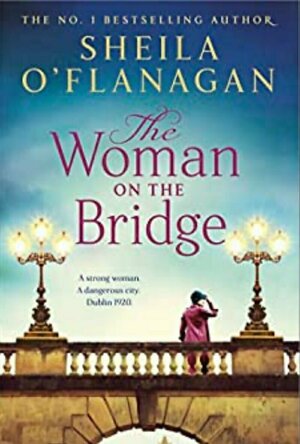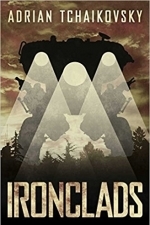
Pretty Ugly Lies
Book
What causes a woman to murder her whole family? Jo's idyllic life would make most people jealous....
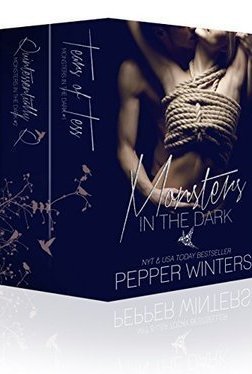
Monsters in the Dark (Monsters in the Dark, #1-3)
Book
From New York Times Bestseller Pepper Winters comes the highly acclaimed USA Today Bestselling...
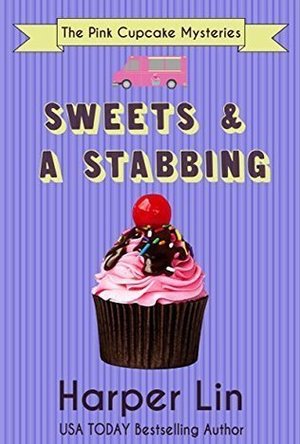
Sweets and a Stabbing
Book
The Pink Cupcake Truck is here! From USA TODAY Bestselling Author Harper Lin: After a messy...
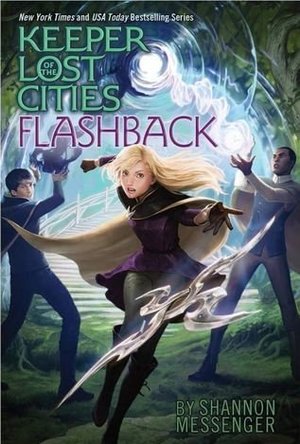
Flashback
Book
In this unforgettable seventh book in the New York Times and USA TODAY bestselling Keeper of the...
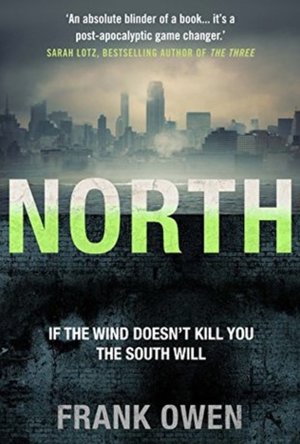
North
Book
Guardian's Book of the Month, 2018 '[With] echoes of Cormac McCarthy's The Road and Stephen...

Murder in Red
Book
In the latest entry in this USA Today bestselling series, Jessica loses a loved one to unnatural...
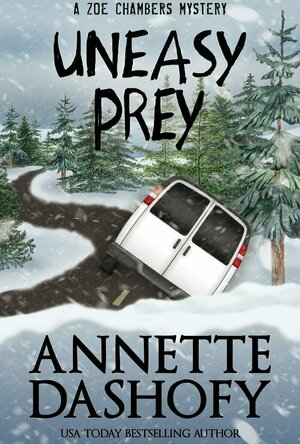
Uneasy Prey
Book
From USA TODAY bestselling author Annette Dashofy comes the latest in her multi-award-nominated Zoe...
ClareR (6054 KP) rated The Woman on the Bridge in Books
May 29, 2023
It’s the 1920’s and Ireland is fighting for its independence. There’s so much going on in this story: the fight for Irelands independence; domestic violence; poverty; tuberculosis; women’s rights; emigration of the Irish to the USA and other European countries.
Winifred O’Leary is a strong woman who wants to be independent, both as a woman and as an Irish woman. The book doesn’t go too much into the ins and outs of the political situation, but I’ve certainly learnt more about what went on during this time. It was a hard time to be living in.
Winnie’s husband certainly experiences a lot of this hardship. He’s imprisoned for his actions with his fellow freedom fighters.
This is a love story as well as a story about the politics at the time. I really enjoyed it and I realise that it was first and foremost a love story - and an enjoyable one at that!
I have read Adrian Tchakovsky's Shadows of the Apt series and loved it.
I recently read his Dogs of War and enjoyed it. However I think this has somewhat tainted Ironclads for me.
Ireonclads sees us again in the near-future where the UK (read as England which annoyed me, being Scottish) has gained independence from Europe and subsequently gone bust and been bought over by the USA. The USA is likewise invading or at war with much of the rest of the world. These wars are now fought mainly in corporate interest (but then what's new *cough gulf war cough*) with armies of poorly equipped government soldiers being dent in to conflict occasionally supported by corporate playboys (generally the heir to the corporate fortunes) in their massive armoured scion suits (hence iron-clad) where they are fully protected from pretty much everything. These playboys tend to be captured by each other and ransomed back to their families, guffawing at their japes all the way.
The story sees one small group of US soldiers sent in to deepest darkest Sweden to rescue one such playboy who got himself too far ahead of the army and appears to have gone missing but without ransom (without his scion suit).
Being a short (200 pages) book worked well for me, I felt any more scenes or narrative would have felt like padding and this was its natural length.
However, for me this book felt like the notes or background story to Dogs of War and has suffered from my having read the latter. That book notes that wars used to be fought with machines and robots but moves on to cybernetically enhanced animals. This book felt like a side story or introduction to the Dogs of War world and little more.
Other aspects of the story chimed with that of Dogs of War as well and showed the author to be a little short of ideas - living beings with their brains/bodies cybernetically enhanced, swarms of insects used to disrupt communications, the USA being a little bit invadey and corrupt etc.
While this is not my usual cup of tea, I have enjoyed other sci-fi and felt this was a little slapdash. I didn't like the narrative style, finding the blasé, informal tones of the army sergeant both jarring and poorly executed. And while I don't need to be spoon-fed the plot, I found some elements badly or barely explained (what DID the Finns do?!) and the major plot twist neither surprising nor worth the wait.
Tchaikovsky can describe a battle scene well and you get a feel for the whole battle as well as the key conflicts, so the action itself is fairly gripping at times. However, the finished article left me feeling a bit meh.
All in all I am glad I read this, but had expected better things from his sci-fi given Children of Time won the Arthur C Clarke award.

